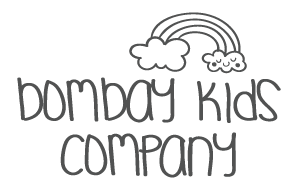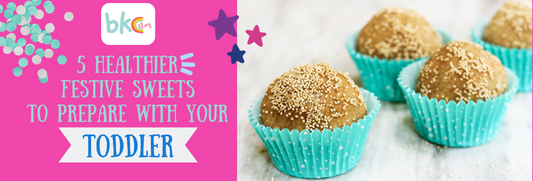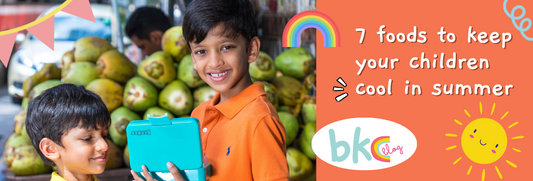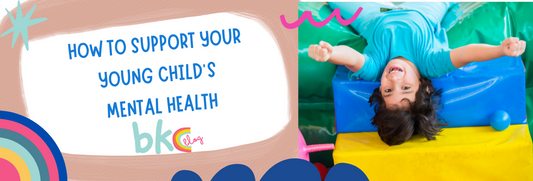Friends come in all shapes, types, and sizes. A parent, a sibling, an animal, or even a toy can become a friend. This list of books is a creative way to help your child understand the importance of friendship in their early years, through stories and illustrations. We also have a few tips on how parents can help their child understand what friendship is, and help them make friends!

Traditionally, Friendship Day is celebrated on the 1st Sunday of August. Why just a day, though? Let’s celebrate friendship all month – or even year – long! Friendship, and the memories made in childhood, are to be treasured for life. However, the pandemic made making friends hard for children. Most children didn’t get to see their friends, or make new ones, for two years. Some children didn’t even have the chance to make any friends!
The Benefits of Childhood Friendships
Even if your little ones haven’t had the chance to make friends yet, they can always start now! It is important for your child to learn how to make friends, and understand how to play and interact with others. These skills will stay with them throughout their lives, and play an important role in their adult lives. Some of the skills they may develop include sharing, communication, cooperating with others, listening, overcoming disagreements, and even understanding different points of view!

Some benefits of building childhood friendships include:
-
Emotional and Social Development:
It is usually through early friendships that children learn how to talk and listen to others outside of their immediate family. They are also put in different kinds of situations, in which they have to learn how to respond. This helps them fine-tune their emotional and social skills. A friend group that is caring, kind, and nurturing can help children flourish in social interactions.
-
Increased Empathy:
By developing a sense of closeness and caring for friends, children learn the core roots of empathy. When you hear children saying ‘ABC is my best friend in the whole world’, you know that they have formed a highly empathetic and caring bond with their friend!
-
Self-confidence and Well-being:
Making friends requires one to be vulnerable and open. When children make a new friend, it boosts their confidence. The sense of ‘friendship’ also helps them feel secure, trusted, and happy – thereby promoting all-round well-being.
-
Accepting Differences:
We all have different looks, personalities, opinions, voices, and even ways of thinking and learning! By interacting with others, children understand these differences. This can also help them understand and appreciate their own unique qualities, and the unique qualities of others too! -
Creates a Sense of Belonging:
Having a caring and supportive group of friends helps children develop a strong sense of belonging. This can help children feel more comfortable, confident, and self-assured.

Books That Teach Children About Friendship
Making friends should not be a daunting process for children. We have curated a list of books that will teach your child about friendship, and help them understand the importance of it.
1. Making Friends! (Just Like Us!)
Author: Jess Stockham
This picture book illustrates the different kinds of friendship – in the animal world, as well as the human world. It promotes kindness towards animals, an understanding of the close bonds that animals can share, and the different forms of friendship that humans have with each other. This is a flap-book, so your toddler can lift the pages and see what new pictures lie waiting for them!
Age Group: 1+ years
Buy Now
2. The Great Big Book of Friends
Author: Mary Hoffman
This book celebrates the different facets of friendships, and answers the basic question of ‘who is a friend?’ – it can be a pet, a sibling, a parent, a toy – or whoever you want it to be! An illustrated picture book written in very simple language, it talks about the many diverse forms of friendship.
Age Group: 3+ years
Buy Now
3. Sterling: The Lovestruck Moose with a Heart for Cows

Author: Vitta Murrow
This book is part of a series based on true animal stories. These stories can help children build empathy towards, and a love for, animals. In this book, the author explores the theme of friendship between different types of people (animals). The story revolves around a moose who is obsessed with cows, and wants to be their friend – no matter what! The theme of the book can help children understand the importance of diversity in friendship.
Age Group: 4+ years
Buy Now
4. Kevin

Author: Rob Biddulph
This is a heartwarming story of a mischievous little boy, Sid, who has a knack for getting into trouble, and then blaming his best friend – Kevin (who is invisible!). Rob Biddulph has used his iconic style to illustrate this book, and explore the special friendship between Sid and Kevin. An important lesson learnt is how sometimes, even an imaginary friend can help a child with real feelings. This is a must-read for anyone who’s ever needed a friend to rely on.
Age Group: 4+ years
Buy Now
5. A Friend for Henry
Author: Jenn Bailey
This book is a touching story about Henry, a boy with autism, and his quest for friendship. For those on the autism spectrum, making a friend can be a difficult experience. Author, Jenn Bailey, has written a heartwarming book with a lot of insight and warmth – truly celebrating friendship!
Age Group: 5+ years
Buy Now
6. The Invisible Boy
Author: Trudy Ludwig
This story follows a boy’s experiences as he tries to make friends at a school he is new to. The book can help children who are struggling to make friends find someone to relate to, while teaching others the importance of kindness. It also teaches children that one little caring gesture can go a long way in helping someone who may be feeling lonely.
Age Group: 6+ years
Buy Now
7. Looking After Your Mental Health
Author: Alice James
Sometimes, when we are little and our feelings seem too big, we have to learn to make a very important best friend – oneself! This book helps children understand, express, and navigate through their feelings, thoughts, and emotions. It contains heaps of practical advice for slightly older readers, and covers diverse topics, including friendship, bullying, family issues, eating disorders, and much more.
Age Group: 11+ years
Buy Now
Helping Your Child Make Friends
Home is the best place to start helping your little ones understand what friendship is, and its importance. While reading books goes a long way, as a parent you can also help your child learn more about friends and friendship at home. Here’s how:

-
Have healthy conversations about friends and friendship.
Ask your child what they think friends are, whether they would like to have a friend, and what they feel they would love their friends to be like. If your child already has a few friends, you could ask them what they like about their friends. It is also okay to ask them if they don’t like something about their friends, and why.
-
Have a warm, and loving bond with your children.
When children experience a warm bond with their parents, they tend to find it easier to make friends. This could be because they understand empathy, and are able to treat others with kindness and sympathy. -
Understand your child’s personality.
There is no one-size-fits-all way to help your child make friends, and no two children have the same personality. Some children can be more sensitive or shy than others. By understanding your child’s personality, you will be able to help “coach” them where they struggle. If your child is introverted, they could find it difficult to go up to new people and make friends. To help them overcome this, you could help your child in small ways – maybe by arranging a playdate for them. This will help your child feel more comfortable, and find it easier to build strong, safe, and caring friendships.
Friendship Problems? It’s Okay. We All Have Them
We all know children are the best when it comes to saying EXACTLY what they feel. Most of us would have heard (or been told by a friend when we were younger) “I don’t like you”, “XYZ is my friend now”, “We are not friends” – young children tend to live ‘in the moment’, so when they say these things they could mean it just in that moment, and forget it the next!

However, this could be very upsetting when heard by a child, and we can help them overcome it, or even understand why such things can hurt others.
-
Encourage your child to practice empathy and kindness towards others.
-
Talk to your child about being confident enough to express their feelings, but also mindful about what the other person may feel.
-
Model positive interactions with others, at all times.
-
Encourage your child to talk about their day at school, and prompt them to speak about their feelings, moods, and thoughts.
-
Help your child develop a positive sense of identity.
Friendship goes a long way in helping children become a part of something meaningful. It can add a sense of wonder, joy, and excitement in their lives. Children, with time, will learn how to make new friends with ease, nurture bonds, and learn more about themselves and others in the process. Afterall, a friend in need, is a friend indeed!






